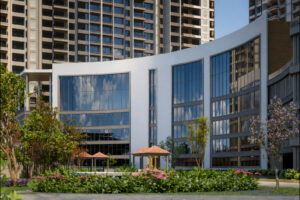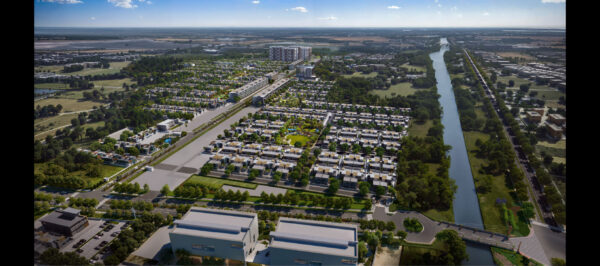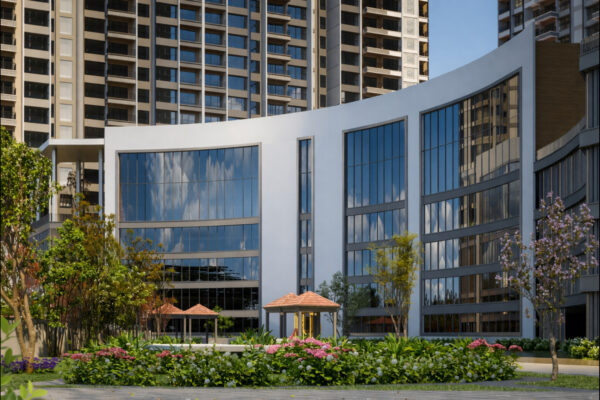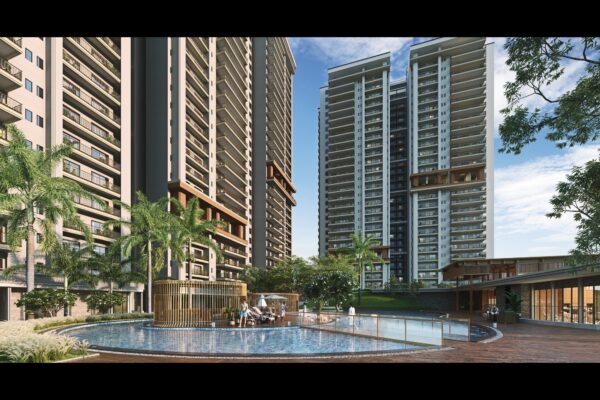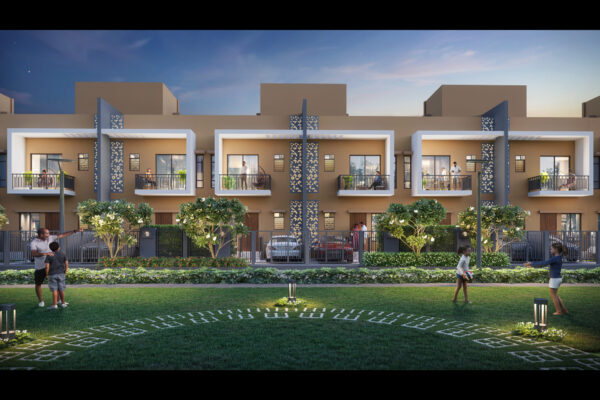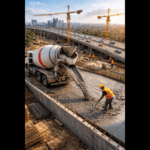The realty sector appears to be moving towards consolidation, says Manoj Rastogi, CEO, Concrete Products Division, SOBHA Limited
The ongoing Pandemic and its impacts are going to last for at least a year or two. What strategies have you adapted to adjust with the ‘New Normal’ and get going with the business as usual?
The real estate industry is going through a paradigm shift that will benefit the industry in the long term. The industry has begun to see the results with growing pre-sales inquiries, demand, and launches. As per the recent Knight Frank report, 71,963 units were sold during the first quarter of 2021, which is 44% more than the same quarter last year. Sustained and concentrated efforts by the government and developers are required to continue boosting the sector and economy. The New Normal has pushed the developers and consumers to adapt to digitization at a faster pace. Transactions, capital deployment, property management, virtual visits, and consumption patterns have aided in the sector's rise even during the pandemic. At SOBHA, we have robust processes in place and a track record of delivering quality projects on time due to our backward integration model. Our divisions of Concrete Products, Glazing and Metal works, Restoplus (Mattresses) and Interiors have helped us sail through these times successfully and continue business as usual. We have adopted ‘safety first’ at the core of our work ethic. It was central to what we did for the past 25 years but now in this reset environment, it has taken all the more significance. We take safety of our workers, employees, customers very seriously at our sites and work places and follow all the prescribed guidelines. It has taken primacy over all other things as human lives are more precious than anything else.
Being one of the leading real estate developer, what is your take on the current real estate scenario in India?
Like all sectors, Real Estate is also impacted by the pandemic. However, in such situations, either we fail by giving up or try to stand up, assess the situation, and work towards addressing opportunities. We at SOBHA have always chosen the latter. In 2021, we expect that the sector will see more traction with increased buyer sentiment. The positive reforms initiated by the government will help the sector revive faster. Reduction of stamp duty on property registration, lower interest rates on home loans, ease in investment opportunities through flexibility in REITs and tax reliefs will boost the sector and the economy. The vaccination drive, under the government is likely to augment well and bring back normalcy soon. The industry is optimistic about its ability to recover from the pandemic's impact on sales and contribute to the economy more efficiently. The sector appears to be moving towards consolidation. Stronger players with established processes in place will stand to gain. When times are uncertain, consumers pivot to those players who can deliver quality products on time.
How can a systematic revival be brought about?
The Indian real estate had been on the slow revival path when pandemic hit last year. According to a survey, housing unit sales or absorption increased by 21% across India's top 7 cities in the first quarter of 2021. The measures from the Government and offers from the Developers, especially during festivals, will create sales momentum for the upcoming quarters. Clearance of unsold inventory will further boost the sale and help the sector stabilize. Industry projections suggest that nearly $14.9 billion in NRI money would flood the Indian real estate market in FY22, surpassing the previous record of $13.1 billion in FY21. NRIs have set the trend of investing in real estate, particularly in the last year, due to the demand for smart homes and greener houses, and we expect it to grow in the future.
Further support from the government will hasten the recovery of the sector. NBFCs and HFCs constitute a significant source of financing, and passing benefits of the repo rate cuts from the banks to borrowers is essential, as the sector contributes almost 11% of bank’s credit to the GDP. Keeping the larger concern of the realty sector in mind, reducing the maximum interest rate on new home loans to 5% for the next five years will play a crucial role in raising consumer sentiments. To further ease the uncertainty, a scheme for homebuyers who need to pay only margin money with no EMI for 24 months by RBI, will help the industry immensely. One-time (loan) restructuring, additional institutional funding, waiver of penal interest, policy innovations for triggering consumer demand and controlling cartelization of raw material will help the sector. If these steps are calibrated efficiently and timely, the real estate sector will bounce back with immense ripple effects and enter a transformative era.
Please take us through your Concrete Products Division?
SOBHA is one of India's largest and the only real estate company with a self-reliant, backward integrated business model, enabling it to produce major construction components in-house, from concrete products to aluminum windows and major wood work for interiors. The concrete products division was set-up around 2005-2006 and has a production capacity of more than 30,000 blocks/day of 8” size or more than 7.2 mnsft of paver products per annum. We have world class factories wherein we make concrete solid and hollow blocks, landscaping products like pavers, kerbs, water drainage channels, paving slabs, precast drain covers, precast boundary walls etc. Apart from these products, we also have a well-equipped Glass Fiber Reinforced Concrete (GFRC) factory. GFRC is a fiber-reinforced concrete product, for both internal and external usage. GFRC, made of white cement, is one of the best elements for giving building's interior or exterior a luxurious look and feel. It is suitable for a wide range of projects including residential to institutional and is made up of ready-to-use and easy-to-install elements. Concrete products like pavers offer a long life, low maintenance and economical alternative to concrete/asphalt roads. They also have the advantages of speed and flexibility, ground water recharging and low manpower requirements in laying.
Our CPD portfolio includes some well-known companies like Godrej, NVT, Goyal Group, L&T-ECC, Gina Engg. Mfar, Divyashree, ITC, DLF, KNS Group, Prestige, SNN Group, Infosys and many more. SOBHA aims to use its concrete technology expertise for precast and mortar businesses. SOBHA is working towards introducing environmental-friendly products to replace traditional products using innovative technologies.
What are the benefits of having a Concrete Products Division for a real estate player?
SOBHA Limited is India's only real estate company with a self-reliant backward integrated businessmodel, allowing it to produce all significant construction components in-house, from concrete products to aluminum windows. This makes us a an “Aatmanirbhar” company committed to delivering high-quality homes on time. Having an in-house Concrete products Division gives us full control over the quality of concrete blocks that we intend to use for our projects. It gives us control over the entire supply chain of the ingredients that go in the making of our quality concrete blocks. It helps us in not compromising on the high quality ingredients that we need towards making high quality finished products.
What are the environmental-friendly products you have introduced for the real estate sector?
SOBHA is working towards introducing environmental-friendly products to replace traditional products using innovative technologies. We have introduced pre-mixed plaster and pre-mixed jointing mortar. These are prepacked items scientifically produced to provide assured and consistent quality. Our pavers are also low carbon products compared to traditional concrete roads. We have also introduced concrete blocks with a lower carbon footprint.
How are the latest technologies helping in faster completion of the project and in overcoming labour shortages?
When it comes to buyers, most of them prefer on-time delivery without compromising on quality. With the rising demand over the years, the supply side saw deterioration in the quality of products being delivered. SOBHA has a track record of delivering high-quality homes on time, which has been possible due to our backward integrated model developed in 2000. Our founder believed that this would give the company the culture of self-reliance, if things were done in-house. All critical functions – be it design, architecture, mechanical, electrical, plumbing and engineering works began to be done within the company. Three factories were established in Bengaluru in quick succession: SOBHA Interiors, SOBHA Glazing & Metal Works and SOBHA Concrete Products. This model helps us control resource management and quality, integral to the construction process under single ownership. SOBHA ensures that the workforce employed in all these divisions are highly skilled, and therefore, imparts in-house training and certification in technical aspects at SOBHA Academy. This helps them enhance their skillsets. All our factories are well equipped to cater to our internal requirements of SOBHA projects and other players in the construction industry. The Company uses German tools, waterproofing techniques and follows European standards in all its construction activities. Sobha uses both indigenous and imported technologies for implementation at all its projects. SOBHA uses Precast technology at its Dream Series projects. The precast helps the company use its workforce efficiently. The precast technology helps provide employment to workforce throughout the year and reduces workers onsite during this pandemic due to highly mechanized construction. It allows us to control resource deployment and quality at every step of project execution, right from ideation to project completion.
How do you see the economy, opportunities and challenges in this pandemic situation and please give us a brief idea about the strategies outlined to tap in the future potentials?
The real estate industry, which employs the second-largest number of people after agriculture, is a strong pillar of the Indian economy. Almost 6-7 percent of the economy is made up of this industry. Over the past years, development in the infrastructure, expansion of cities to peripheral areas, and increased commercial spaces and factories have helped the sector grow. As per an estimate, by 2025, the sector is expected to account for 13% of the country's GDP, and by 2030, it will be worth $1 trillion. This shows the bright future of real estate in the country, irrespective of the current impact due to the pandemic.
Also, the millennials and the working class's increased interest will increase the demand in residential projects in the coming quarters due to the work from home culture induced by the pandemic. Builders are also planning for festive reductions in the prices, which will again boost the sales. In addition, the reduction in the loan interest rate and stamp duty for registration of the property will further motivate the fence-sitters to invest. All these will result in a better economy and improvement in the sector.

.jpg)

